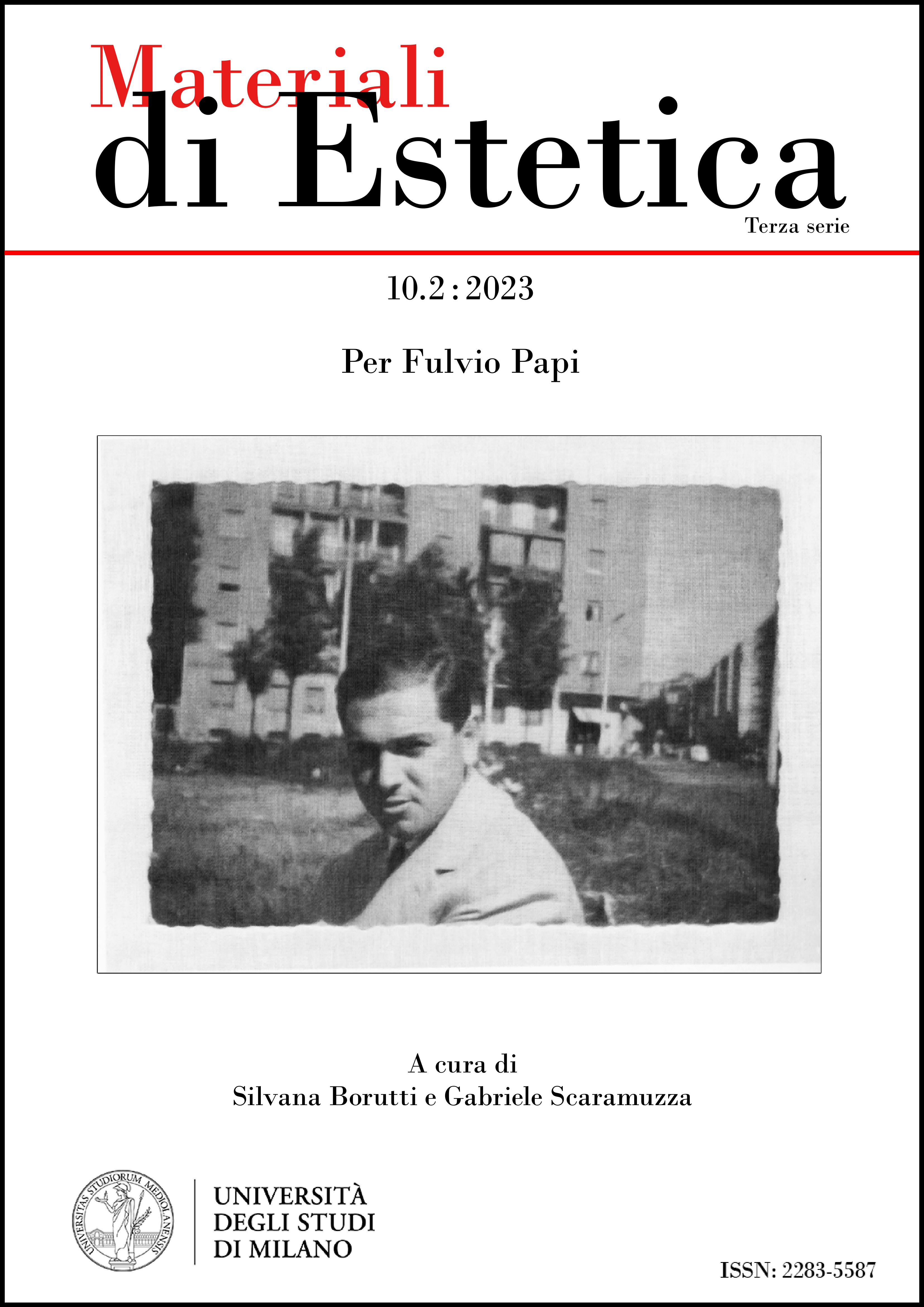Polja. La fecondità carsica del tema educativo nel lavoro di Fulvio Papi
DOI:
https://doi.org/10.54103/mde.i10.2.22094Parole chiave:
Feeling of life, Education, Luxury of thoughtAbstract
Education as a philosophical issue, as a personal experience and as a cultural expression of our time has run through Fulvio Papi’s work longitudinally. The works dedicated explicitly to this subject have been interwoven with those of witnessing, on several occasions, the cultural history of the School of Milan, without neglecting the ‘autobiographical’texts, where the memories of school, teachers, schoolmates and the experiences that made them eloquent find their place and ever new meaning. There is, however, also a more subtle focus on education, which emerges in Papi’s work as do the Karst landscapes, close to his beloved Trieste. Taking this scenario as an imagine of meaning, it is also possible to find hidden strata and fertile ground in other texts, where one’s own formation is anchored in the ability to emerge as a culturally aware and socially responsible self. In particular, The Luxury and the Catastrophe (2006) stands out for its formative intensity. Here, the ‘feeling of life’ of becoming a subject is grafted into the ethical-social dimension in at least two ways. The first way, argumentative, concerns the ego’s relationship with reality, where catastrophe is grasped as the current world-form and luxury corresponds to the form of thought from which it is impossible to separate oneself, even when it risks sterilising understanding. The second, methodological mode identifies in the processes of adhesion and differentiation of the ego from the self the only real possibility of coming to terms with a relationship with the world that is inexorably partial and lacking. Just like poljas, Papi’s books are fields (the world-forms) that are always fertile because they are irrigated by streams of water or hidden aquifers (the subjectivities) and surrounded by rocky outcrops (the luxury of thought) that protect and bound them. To recognise them, one must go deep.
Downloads
Riferimenti bibliografici
BAUMAN, Zygmunt, Vita liquida (2005), trad. it. di M. Cupellaro, Laterza, Roma-Bari 2006.
BECK, Ulrich, La società globale del rischio (1999), trad. it. di F. Pagano, Asterios, Trieste 2001.
CHIODO, Simona, SCARAMUZZA, Gabriele (a cura di), Ad Antonio Banfi cinquant’anni dopo, Unicopli, Milano 2007.
ERBETTA, Antonio (a cura di), L’educazione come esperienza vissuta. Percorsi teorici e campi d’azione (2005), Ibis, Como-Pavia 2011.
GALLINO, Luciano, Finanzcapitalismo. La civiltà del denaro in crisi, Einaudi, Torino 2013.
PAPI, Fulvio, Il pensiero di Antonio Banfi, Parenti, Firenze 1961.
—, Educazione (1978), Ghibli, Milano 2001.
—, Vita e filosofia. La scuola di Milano. Banfi, Cantoni, Paci, Preti, Guerini e associati, Milano 1990.
—, Capire la filosofia, Ibis, Como-Pavia 1993.
—, La biografia impossibile, Ibis, Como-Pavia 2001.
—, L’albero d’oro. Un’adolescenza immaginata, Ghibli, Milano 2004.
—, La memoria ostinata, Viennepierre, Milano 2005.
—, Il lusso e la catastrofe, Ibis, Como-Pavia 2006.
—, Antonio Banfi. Dal pacifismo alla questione comunista, Ibis, Como-Pavia 2007.
—, Voci dal tempo difficile, Ibis, Como-Pavia 2008.
—, L’educazione imperfetta. Considerazioni filosofiche sul presente pedagogico, a cura di E. Madrussan, Ibis, Como-Pavia 2016.
—, La sapienza moderna, Ibis, Como-Pavia 2020.
—, Per andare dove. 1939-1949, Mimesis, Milano 2020.
Dowloads
Pubblicato
Come citare
Fascicolo
Sezione
Licenza

Questo lavoro è fornito con la licenza Creative Commons Attribuzione - Condividi allo stesso modo 4.0.






